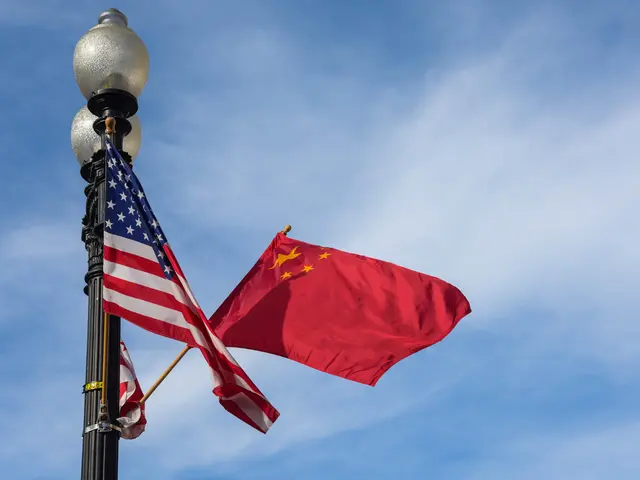As some officials in the U.S. government push for decoupling with China, Yukon Huang, a senior fellow with the Asia Program at the Carnegie Endowment for International Peace, said both sides will be hurt by it in the end.
Some U.S. officials have been arguing for decoupling in trade, technology, and financial systems, and this will change the supply chain globally, Huang told Xinhua in a recent phone interview.
"If you prohibit American company from exporting tech components to China, these American companies will suffer in terms of reduced profits and the ability to invest in growth," Huang said.
On the Chinese end, some Chinese companies will have a hard time producing their communications equipment, said Huang, also the World Bank's country director for China from 1997 to 2004.
Noting that there is a significant reduction in trade flows between the two countries last year amid the trade war stirred up by Washington, Huang said: "while China feels an impact in terms of reduced exports, American households, American producers also feel the effects of the tariffs in terms of lower standards of living and higher cost of production."
"There are no winners in this kind of decoupling. Both sides will be much worse off," Huang said.
The economist noted the change of the supply chain, expected to be accelerated by the COVID-19 pandemic, will affect the whole Asian region, as other Asian economies are all linked to China. "You're going to see more supply chains become decentralized," he said.
Noting that the pandemic is slowing growth, Huang said things could become costly as a result of the decentralized supply chains. "You have to adjust therefore to a higher-cost structure. You have to adjust to more localized activity," he said.
Commenting on a growing trend of anti-globalization amid the pandemic, the economist said for the past few decades, globalization has been proceeding rapidly, which is good for the whole world, with incomes increased, knowledge shared, and the world better connected.
However, there are segments of society which have not benefited as much, therefore there have been concerns and arguments about the benefits of globalization, he said.
"I think the major point to recognize about globalization is you can't stop it," Huang said. Regarding this, the only issue of globalization is how to regulate it, and how to make sure that some of the negative consequences could be dealt with more effectively, instead of getting rid of it or turning it back, he said.
To better handle global affairs, the economist called for stronger leading roles of international agencies and institutions to deal with issues that cross country borders, while urging countries to rely more upon global institutions such as World Trade Organization and World Health Organization.
"In a globalized world, you'd have to have (multilateral) institutions which have the authority to arbitrate and regulate across government, across countries," Huang said.
(CGTN)
 简体中文
简体中文

